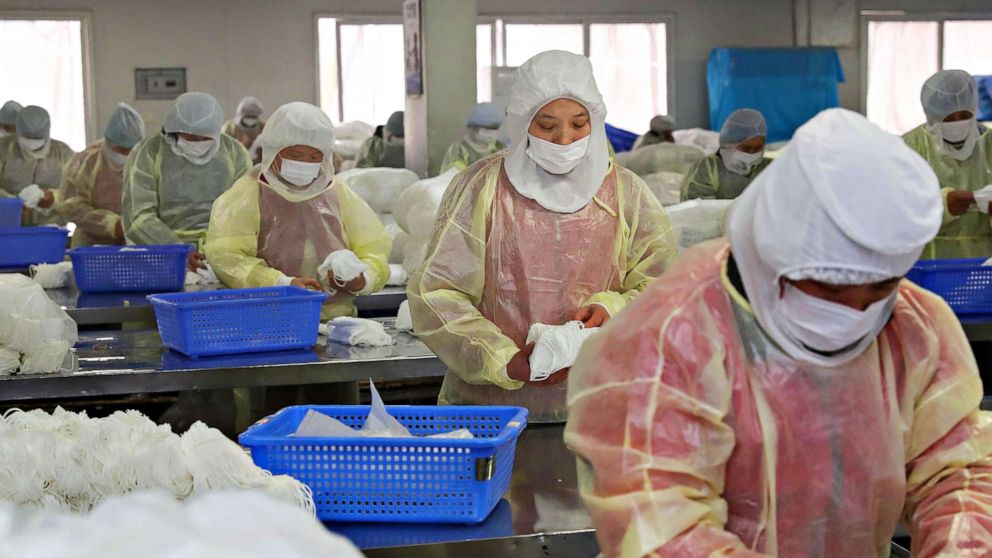Coronavirus outbreak puts chill on US businesses, from Apple to Starbucks

Apple, McDonald's and Starbucks are among the growing number of international companies that have shuttered stores, reduced service or removed staff from China as the coronavirus outbreak continues to dampen global economic activity.
While the full financial impact of the outbreak on global business is still revealing itself, here are where things stand.
Despite a solid jobs report, financial markets were down Friday as coronavirus uncertainty continues to rattle global business outlooks. The Dow Jones Industrial Average dropped approximately 200 points, and the S&P 500 and Nasdaq similarly fell Friday.
The death toll from the virus soared to more 560, almost all in China, and the disease has sickened more than 28,000 people as of Friday, according to the World Health Organization.
The CEO of cosmetics giant L'Oreal said Friday that the virus "will certainly have an impact in the weeks to come" on business, as China is one of its biggest markets. It's factories and offices in China were closed until at least Monday, Jean-Paul Agon added in press conference, saying it was too early to calculate how the disease will impact sales, Reuters reported.
Wynn Resorts is losing between $2.4 million and $2.6 million a day for every day its casinos in Macau are closed, largely due to payroll expenses for its 12,200 employees, CEO Matt Maddox revealed in an earnings call Thursday.
Officials ordered casinos to suspend operations in Macau, the world’s biggest gambling hub, after there were a number of confirmed cases there and in neighboring Hong Kong.
Yum China, which operates KFC, Pizza Hut and Taco Bell brands within China, said that more than 30% of its restaurants in China are temporarily closed due to coronavirus, and on Wednesday said it could not forecast when they would re-open.
The company’s CEO Joey Wat said their “top priority is the health and safety of our employees and customers.” CFO Andy Yeung added, however, that while it will be difficult to calculate at this time, “we can reasonably expect it to materially affect our 2020 sales and profits.”
Nintendo alerted customers in Japan Thursday that shipments of its Switch and Joy-Con devices, which are manufactured in China, will be delayed for an undisclosed amount of time due to coronavirus.
South Korean automaker Hyundai announced Tuesday it is suspending production lines at its plants in Korea because of supply-chain disruptions in China stemming from the coronavirus outbreak.
"Hyundai Motor will closely monitor developments in China and take all necessary measures to ensure the prompt normalization of its operations," the company said in a statement to ABC News.
Hyundai said it is reviewing measures to mitigate the disruption that include considering suppliers from different regions.
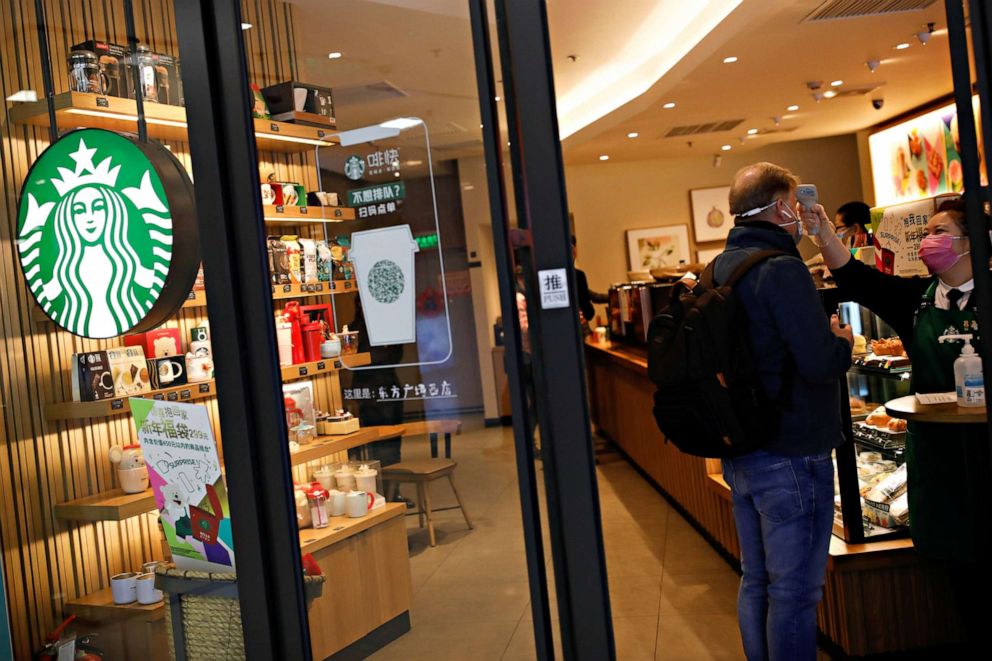
Many airlines have suspended flights to mainland China, including United, Delta and American. American Airlines announced Tuesday that it would temporarily suspend flights to Hong Kong, due to "declining demand." United said it is suspending flights between San Francisco and Hong Kong from Feb. 8 through Feb. 20, also due to a drop in demand.
Apple announced over the weekend it was temporarily shuttering all of its stores and offices in mainland China as the number of coronavirus cases soared.
"Out of an abundance of caution and based on the latest advice from leading health experts, we’re closing all our corporate offices, stores and contact centers in mainland China through February 9," the company said in a statement. "Apple’s online store in China remains open."
A handful of international companies had already evacuated foreign staff and closed plants in China, including automakers Honda, Nissan and PSA Group.
The outbreak is causing economic "uncertainties," Federal Reserve Chairman Jerome Powell said last week, posing a potentially significant threat to the world economy.
"There is likely to be some disruption to activity in China and globally," Powell added, according to The Associated Press. "We are very carefully monitoring the situation."
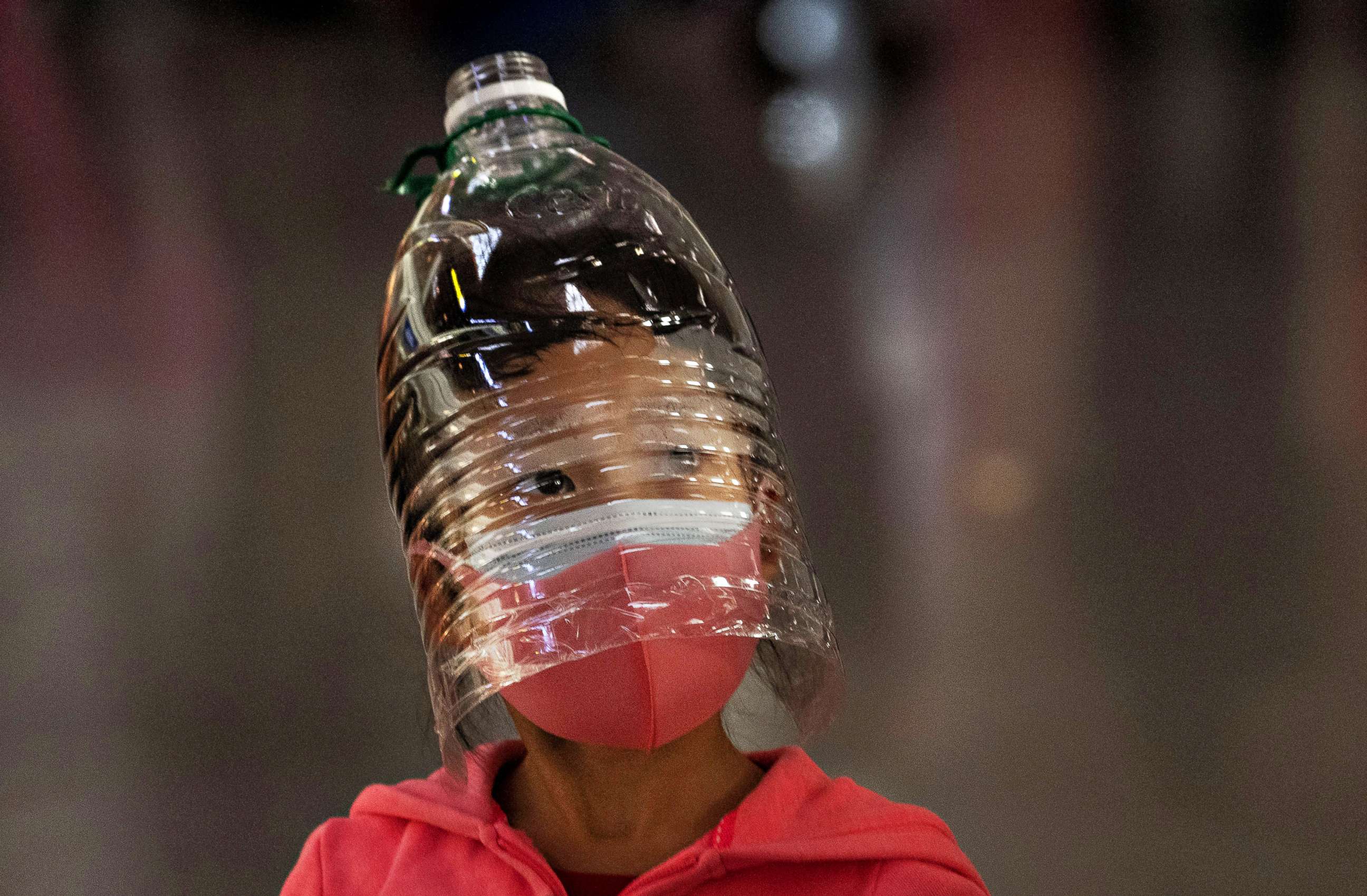
Industry experts noted that with increased globalization, China's role in the global economy has grown considerably since the SARS outbreak in 2003.
"The fear of contagion risk is already evident in global financial markets," analysts at Moody's Investor Services wrote in a commentary last Wednesday. "The outbreak will also potentially have a disruptive effect on global supply chains."
"Global companies operating in the affected area may face output losses as a result of the evacuation of workers," the report added. "Companies operating outside China that have a strong dependence on the upstream output produced from the affected area will also be under pressure because of possible supply chain disruptions resulting from temporary production delays."
Starbucks disclosed to investors during a quarterly earnings report last week that more than half of its stores in China were temporarily closed because of the outbreak. The company said the financial impact "cannot be reasonably estimated at this time."
The U.S.-based coffee chain currently operates more than 4,000 stores in mainland China. Starbucks shares tumbled during trading last week.
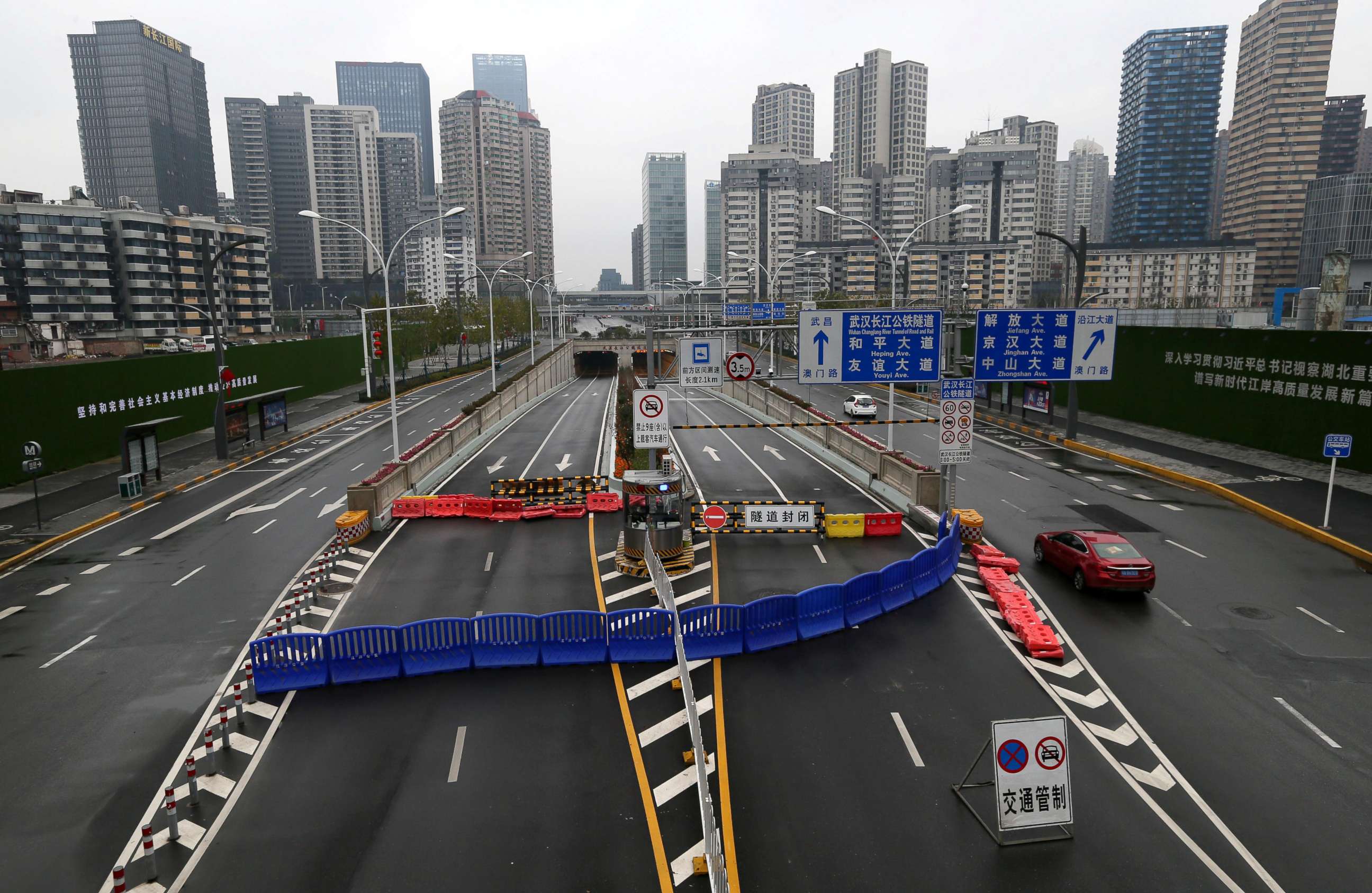
McDonald's announced the closing of all stores in Hubei province, near the epicenter of the outbreak in Wuhan, but thousands elsewhere in the country have remained open.
"China is a critical market for us and we're very concerned about the situation over there," CEO Chris Kempczinski said last week. He added that he predicts the actual impact on business should be fairly small assuming the outbreak is contained.
Tesla temporarily closed its Shanghai Gigafactory as part of a government-mandated shut down.
Tesla Chief Financial Officer Zachary Kirkhorn said in a phone call with investors that the company is in the “early stages of understanding if and to what extent we may be temporarily impacted by the Coronavirus.”
Moody analysts also have predicted the outbreak will affect tourism, both in China and neighboring countries.
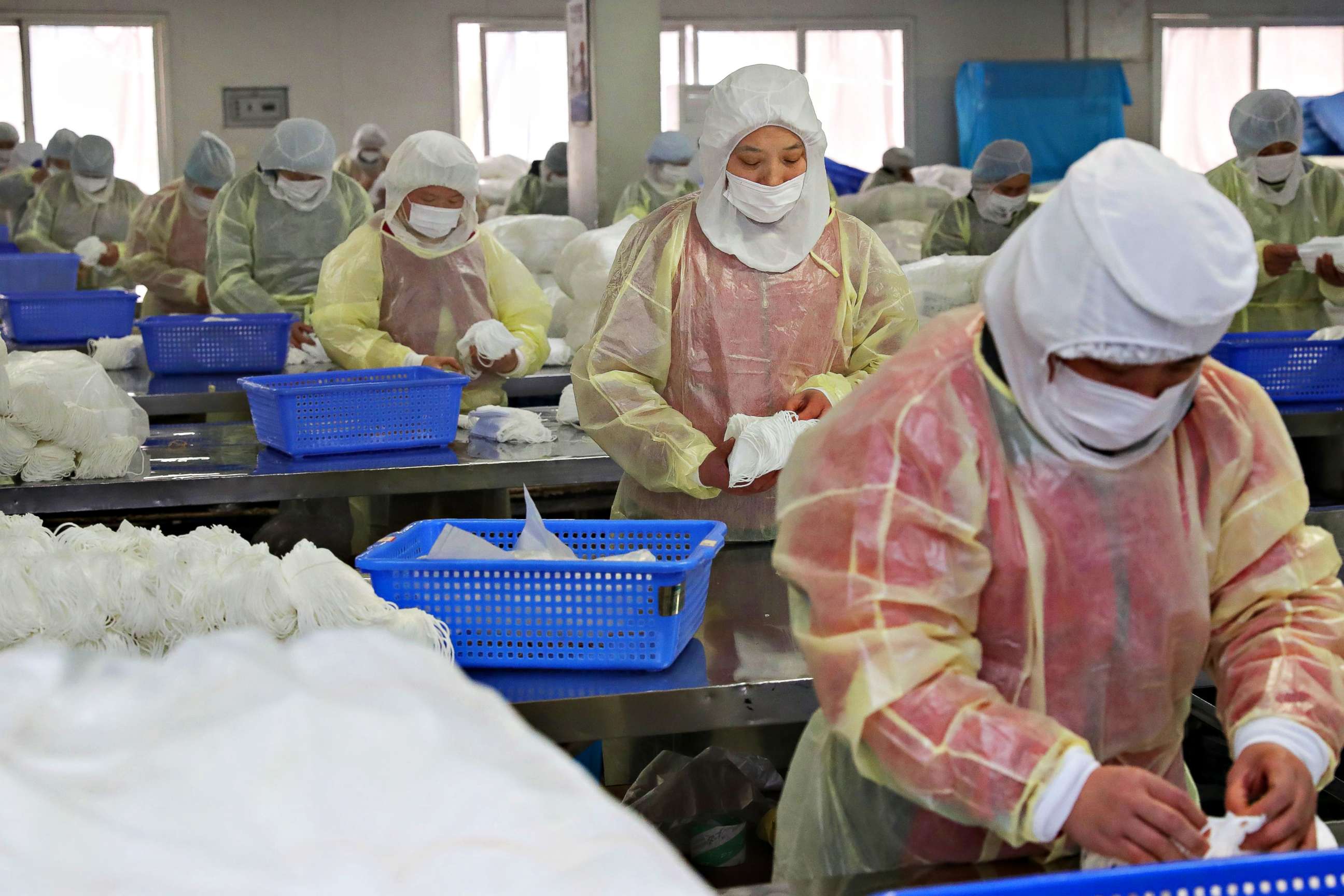
Disney temporarily closed two theme parks, in Shanghai and Hong Kong, as a result of the virus.
U.S. Commerce Secretary Wilbur Ross courted controversy for his comments last Thursday that the coronavirus outbreak could potentially bring jobs back to the U.S. from China.
Shortly after, White House economic adviser Larry Kudlow came out saying they were separate issues, telling reporters, "This is not about trade, jobs or any of that."
